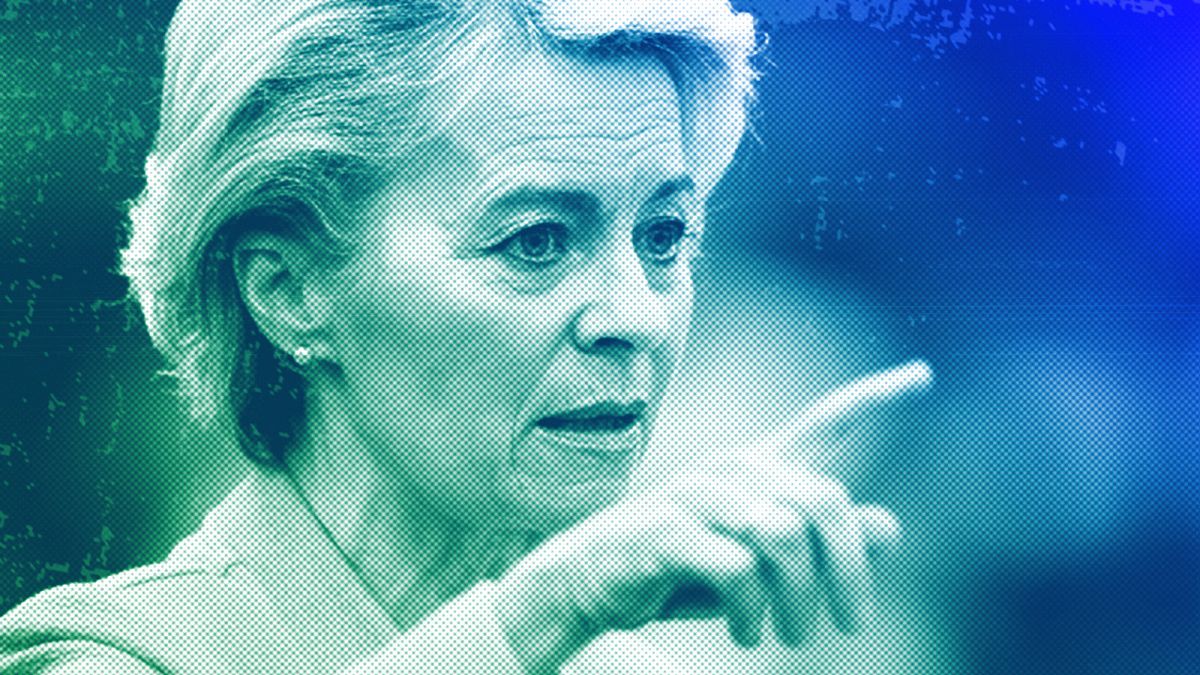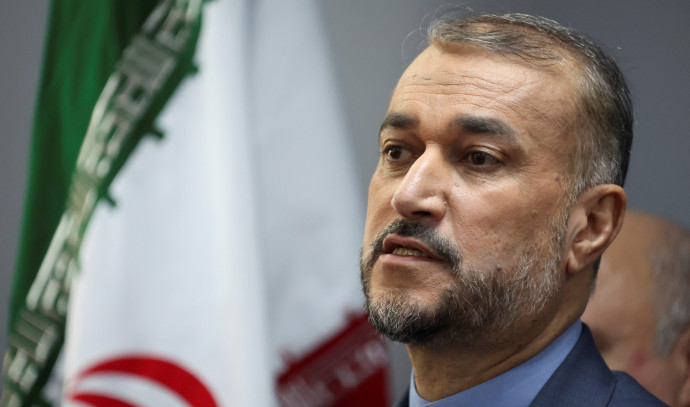World
Can new EU corporate tax rules make big business pay its fair share?

A landmark global deal setting a minimum corporate tax rate of 15% on multinational companies came into force in the European Union on 1 January.
The EU has for years tried to flex its muscles on corporate tax evasion by introducing a raft of new laws and lodging high-profile court cases against multinationals.
But some of its own member states – such as Ireland, Luxembourg and Cyprus – have continued to allow high-profit companies to dodge both taxes and scrutiny. Profit shifting worldwide has also remained high, causing losses worth billions of euros for the continent while economic inequality deepens.
Now, companies with revenues of at least €750 million active in any of the 27 EU states will face a minimum corporate tax rate of 15%. The bloc’s economy commissioner Paolo Gentiloni described the new year rules as “a new dawn for the taxation of large multinationals”.
The move is part of a sweeping overhaul of the global tax system agreed by some 140 Organisation for Economic Co-operation and Development (OECD) countries in 2021 after a decade of negotiations, and aims to crack down on governments that slash their corporate tax bills to attract investment.
Other countries such as the UK, Norway, Australia, Japan and Canada are also implementing the measures.
While the new interlocking rules have been hailed as groundbreaking, experts told Euronews there is a need to close crucial loopholes to ensure big business is held accountable.
A ‘revolution’ in tax justice
The OECD deal consists of two pillars, the first of which aims to ensure companies pay tax where they do business. The second pillar sets the global minimum tax rate of 15%.
In an interlocking system hailed revolutionary, if one country fails to tax a multinational at this rate, other countries can charge a so-called “top-up tax”.
This does not mean EU countries will necessarily adjust their corporate tax rate to the 15% baseline, since other countries will be able to step in to collect the taxes due from multinationals that pay their levies in low-tax jurisdictions.
This means that in a hypothetical scenario, a French multinational operating in Senegal and shifting its profits to Ireland could see either France or even Senegal charge a top-up tax if it doesn’t pay the minimum rate of 15% in Ireland.
“The concept is revolutionary,” according to Quentin Parrinello, a senior policy adviser at the EU Tax Observatory.
“It’s the first time we have more than 140 countries, including all major economic actors, agree that multinational companies should pay a minimum amount of tax on the profits it reports.”
“There is, in theory, no incentive for a country not to apply the minimum tax because if they don’t, another country will get the tax revenues,” Parrinello added.
Most EU countries have already transposed the EU Directive – that makes the new rules a reality – into law. Five countries – Estonia, Latvia, Lithuania, Malta and Slovakia – have informed the European Commission that they will delay implementation as they have fewer than twelve affected multinationals operating within their borders.
Too many loopholes
But despite its promise, experts fear the reform alone cannot stamp out tax havens or prevent a so-called ‘race to the bottom’ of harmful tax competition between governments.
States can still abide by the new minimum rate whilst offering generous tax credits and other deductions that effectively reduce the tax rate below 15%. Many states are already introducing attractive transferable credits, grants and subsidies to compete for investment.
“We already see this, for example with the IRA (Inflation Reduction Act) in the US. We also have countries such as Ireland, Switzerland, and the Caymans already thinking of their own systems,” Parrinello explained.
Another loophole in the deal allows firms to exclude certain amounts of profits – equal to 8% of the value of tangible assets and 10% of payroll in the first year – from the tax base.
The EU Tax Observatory estimates that this loophole could cost the EU some €26 billion in its first year of implementation. A loophole-free 15% minimum tax could have raised around $95 billion (€87 billion) in the bloc in 2023, the watchdog says, dropping to just $67 billion (€61 billion) with the current design.
“There will not be an end to harmful tax competition and the race to the bottom on taxation,” Chiara Putaturo, Inequality and Tax Policy Advisor at Oxfam’s EU office, said.
“We are seeing a lot of countries like Ireland, Switzerland and also Bermuda changing some of the tax systems they had before to introduce generous refundable tax credit so that they will still be able to have a lower and lower tax rate,” she added.
“The minimum tax is a floor,” Parinello said. “It’s much better to have a floor than nothing. But if you drill holes in the floor, you weaken the overall structure.”
World should move in lockstep
The OECD-designed system is unique in the way it incentivises all world nations to move in lockstep. Countries infamous for attracting giant companies with attractive tax incentives – such as Barbados and Panama – are also signatories.
An overwhelming majority of Swiss voters (78.5%) also backed the new rules in a consultation last June, putting pressure on their government to swiftly adopt the rules.
The US and China have not yet passed the necessary legislation but are likely to be incentivised to do so to ensure other countries do not top up their own tax collections at their expense.
But Putaturo warned that the 15% rate, which is lower than the global average, lacks ambition.
“The majority of countries, globally, have an effective tax rate which is higher than 15%. So this could even bring some countries to lower their tax rate, in a race to the minimum rather than a race to the bottom,” Putaturo explained.
“The minimum tax also does almost anything in terms of the redistribution of tax revenues. The so-called resident countries, where multinationals are headquartered, will have the right to top up the tax to 15% if the tax haven does not collect the tax due. This is a problem for poorer countries because the resident countries are mainly rich countries,” she added.

World
Emily Blunt Says She’s ‘Absolutely’ Wanted to Throw Up After Kissing Certain Actors During Filming: ‘I’ve Definitely Not Enjoyed Some of It.”

Emily Blunt got candid during a recent appearance on “The Howard Stern Show” (via People) about how she’s had to fake chemistry over the years with certain co-stars she just struggled to connect with on set. Blunt has acted opposite many high-profile leading men throughout her career, from Matt Damon (“The Adjustment Bureau”) to Tom Cruise (“Edge of Tomorrow”), Dwayne Johnson (“Jungle Cruise”), Ryan Gosling (“The Fall Guy”) and Cillian Murphy (“Oppenheimer”).
“Have you wanted to throw up?” Stern asked Blunt about kissing some of her male co-stars during filming. The Oscar-nominated actor responded: “Absolutely. Absolutely.”
“I wouldn’t say it’s sort of extreme loathing, but I’ve definitely not enjoyed some of it,” Blunt added.
Blunt declined to name any co-star she couldn’t generate chemistry with, but she did say: “I have had chemistry with people who… I have not had a good time working with them.”
“Sometimes it’s a strange thing. Sometimes you could have a rapport that’s really effortless, but it doesn’t translate onscreen,” Blunt continued. “Chemistry is this strange thing. It’s an ethereal thing that you can’t really bottle up and buy or sell. It’s like there or it’s not…It’s just easier when you have a natural rapport with someone.”
Blunt has been acting for so long that at this point she has a formula down for how to build chemistry, saying: “I’ve got to find something I love about everybody. I have to find something … Even if it’s one thing.”
“It might be that they have a nice laugh or I like how they speak to people. They’re polite. I mean, it might be something random,” Blunt explained. “But find something you love about that person or something you love about them as the character and then kind of lean into that.”
Blunt earned an Oscar nomination earlier this year for her supporting role in Christopher Nolan’s “Oppenheimer,” which took home the Academy Award for best picture. She’s currently on the big screen in Universal Pictures’ action romance “The Fall Guy,” co-starring Ryan Gosling.
World
Holocaust survivors visit Auschwitz for annual March of the Living, reflect on Oct. 7 attacks

Several thousand Jews, including Holocaust survivors personally affected by the Oct. 7 Hamas attacks on Israel, walked through the former Auschwitz Nazi German death camp on Monday for the annual March of the Living ceremony in Poland.
Walking along the 1.8 mile path towards the crematoria of Birkenau, they paid tribute to the millions of Jews murdered by the Nazis during World War Two.
This year’s ceremony was overshadowed by the events last year when 1,200 people were killed in a Hamas-led rampage through Israeli towns and 253 hostages were taken, according to Israeli tallies.
HOLOCAUST SURVIVORS CONFRONT RISING DENIAL, ANTISEMITISM IN NEW DIGITAL CAMPAIGN
Daniel Louz, a 90-year-old whose hometown Kibbutz Beeri lost a tenth of its residents to the Palestinian attackers, came to the Auschwitz camp on Monday for the first time since his mother’s family was killed there in 1942.
A wooden guard tower stands at the site of former Nazi German concentration and extermination camp Auschwitz II-Birkenau during ceremonies marking the 77th anniversary of the liberation of the camp and International Holocaust Victims Remembrance Day, in Brzezinka near Oswiecim, Poland, on January 27, 2022. (Jakub Porzycki/Agencja Wyborcza.pl via Reuters/File Photo)
“I am convinced that on October 7 in Beeri the good souls (of the Holocaust dead) protected me and did not let the Hamas criminals shoot at our home,” Louz told Reuters. “So that I might be able to tell the story. I am really thankful to you all.”
More than 1.1 million people, mostly Jews, perished in gas chambers or from starvation, cold and disease at Auschwitz, which Germans set up in occupied Poland during World War Two.
More than three million of Poland’s 3.2 million Jews were murdered by the Nazis, accounting for about half of the Jews killed in the Holocaust.
“Prior to October 7 it is my belief … that the worst event in human history happened on these grounds. That this place, the very word Auschwitz, speaks volumes in one word about fear, death, destruction, annihilation,” Phyllis Greenberg Heideman, President of the International March of the Living, said during Monday’s event.
“And then came October 7, and perhaps we have to come as a people to the realization that perhaps in some ways the Shoah (Holocaust) isn’t over for us. It’s not a competition, certainly not a comparison, it’s a continuum.”
World
Tech compliance reports, Newsletter

This week’s key events presented by senior tech and industry reporter Cynthia Kroet
Key diary dates
Monday 6- Wednesday 8 May: High-Level Conference on Antimicrobial Resistance (AMR) organised by the Belgian presidency of the Council of the EU.
Monday 6 May: Deadline for online platforms regulated under the Digital Services Act to submit transparency reports.
Tuesday 7 May: NGO Seas at Risk to publish report on under-sea mining.
In spotlight
EU platform rules return to the spotlight this week, since today (6 May) is the deadline for the largest online platforms – those with more than 45 million users per month – to hand in their transparency reports under the Digital Services Act (DSA).
It’s the second batch of reports after the stringent rules started applying to the likes of Facebook, Amazon and TikTok last August.
With the submission of the first reports in October, platforms were scrutinised over the low number of content moderators they had in some of the smaller EU member states. Facebook has a single employee looking at Maltese content, and three in Estonia, claiming that much of the process is automated. In comparison, TikTok, which has fewer users per month, has six people looking at Estonian content and none for Maltese.
In light of the latest DSA probes started by the European Commission last week: into Facebook’s and Instagram’s handling of disinformation and ability to stop Russian fake news, all eyes will be on platforms’ election preparedness. And it remains to be seen if the social media platforms have taken more action compared to half a year ago.
With just about a month to go to the European Parliament election, the Commission is trying to ramp up platform preparedness for the poll. Stress-tests last month (24 April) were designed to help mitigate risks that may impact the integrity of elections and their services, for example.
However, as the latest Facebook and Instagram probes show, the Commission largely counting on the willingness of mother company Meta to comply; since there is no deadline for when the probes might end.
Policy newsmakers
@Kergueno @Uspaskich
MEPs interests
MEPs collectively earn more than €8.6 million a year from outside jobs – including from private companies that also actively lobby on EU policy, according to a report published by Transparency International EU today (6 May). Topping the list is Lithuanian MEP Viktor Uspaskich, who declares €3,000,000 per year working for a company called Edvervita UAB. The group, including Raphaël Kergueno, senior policy officer at Transparency, has called for EU lawmakers to be banned from moonlighting, as figures show over two thirds of the 705 deputies disclose activities in addition to their core role.
Policy Poll
Should MEPs elected to the next European Parliament be permitted remuneration:
From MEP salary alone
From additional side jobs
Subscribe here to see the results of last week’s poll and stay informed on the latest EU policy developments with our weekly newsletter, “The Policy Briefing”. Your weekly insight on European rulemaking, policy issues, key events, and data trends.
Data brief
-

 News1 week ago
News1 week agoBoth sides prepare as Florida's six-week abortion ban is set to take effect Wednesday
-

 Politics1 week ago
Politics1 week agoColumbia University’s policy-making senate votes for resolution calling to investigate school’s leadership
-

 Politics1 week ago
Politics1 week agoGOP Rep. Bill Posey won't seek re-election, endorses former Florida Senate President as replacement
-

 World1 week ago
World1 week agoBrussels, my love? MEPs check out of Strasbourg after 5 eventful years
-

 World1 week ago
World1 week agoRussian forces gained partial control of Donetsk's Ocheretyne town
-

 Politics1 week ago
Politics1 week agoHouse Republicans brace for spring legislative sprint with one less GOP vote
-

 World1 week ago
World1 week agoAt least four dead in US after dozens of tornadoes rip through Oklahoma
-

 Politics1 week ago
Politics1 week agoAnti-Trump DA's no-show at debate leaves challenger facing off against empty podium



















